Monthly Market Report: January 2023
Markets Off to a Strong Start
Prepared by Brandon Yee, CFA, CAIA, and Thomas Connelly, CFA, CFP
In the month of January, international developed stock markets returned 8.20%. Canada and Europe ex UK recorded returns of 9.01% and 9.34%, respectively. The U.S. and Japan lagged other markets. International developed markets are now down only -2.98% over the past year while the U.S. market is down -9.45%. Much of the difference in performance between the U.S. market and international developed markets over the past three months has been due to currency movements.
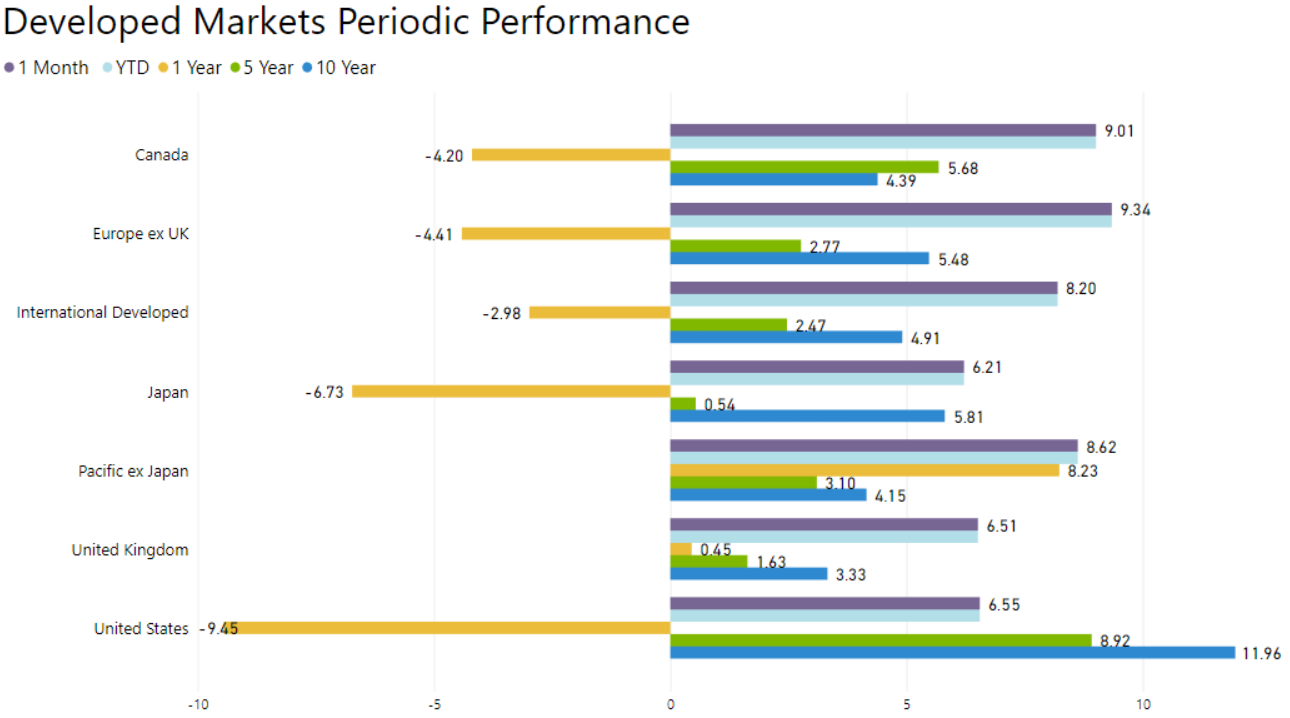
Broader emerging markets posted a 6.99% return for the month. Mexico and Korea recorded returns of 17.02% and 12.38%, respectively. India and Brazil lagged other markets in January. China’s abrupt reversal of its zero-Covid policy has brightened the country’s economic outlook. India’s stock market is down YTD, primarily due to the large drop in Adani Enterprises’ stock after the company was accused of fraud.
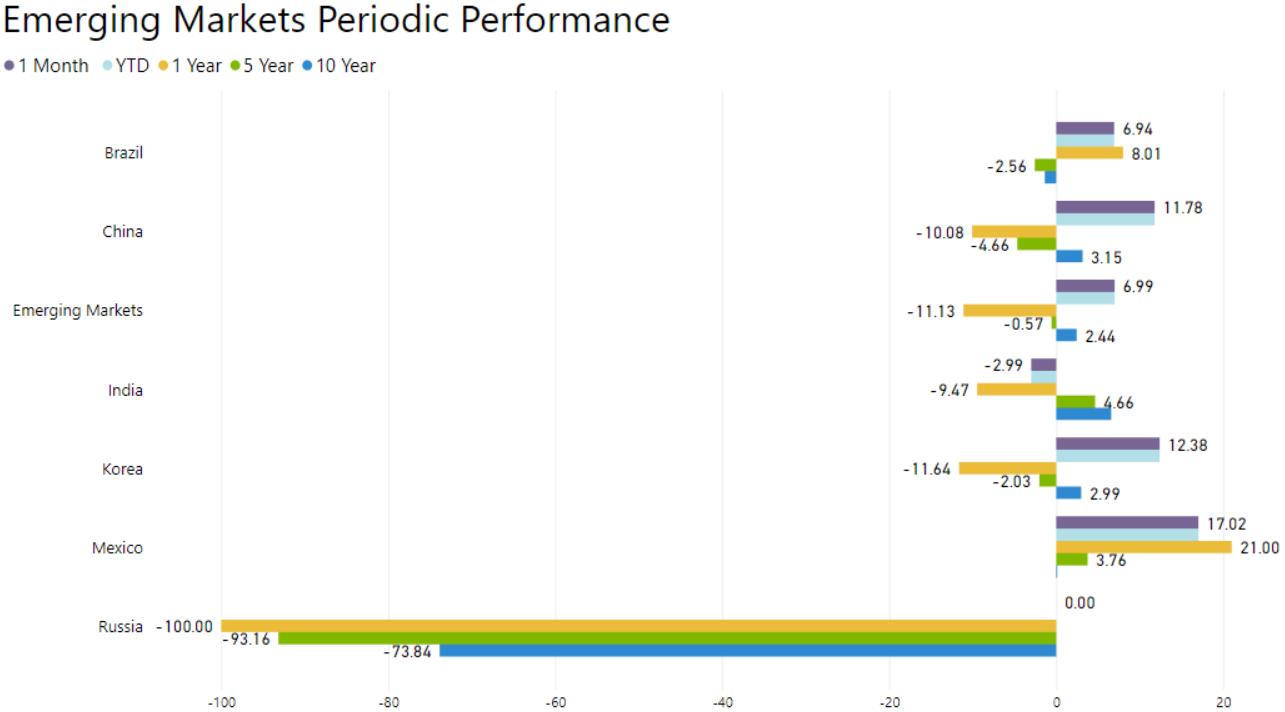
Telecommunications and consumer discretionary recorded returns of 14.31% and 13.38%, respectively, in January. Utilities and healthcare lagged other sectors this month. The information technology sector has rebounded this year after its steep 2022 decline. However, further tightening of monetary policy by central banks could create a tough environment for the information technology sector.
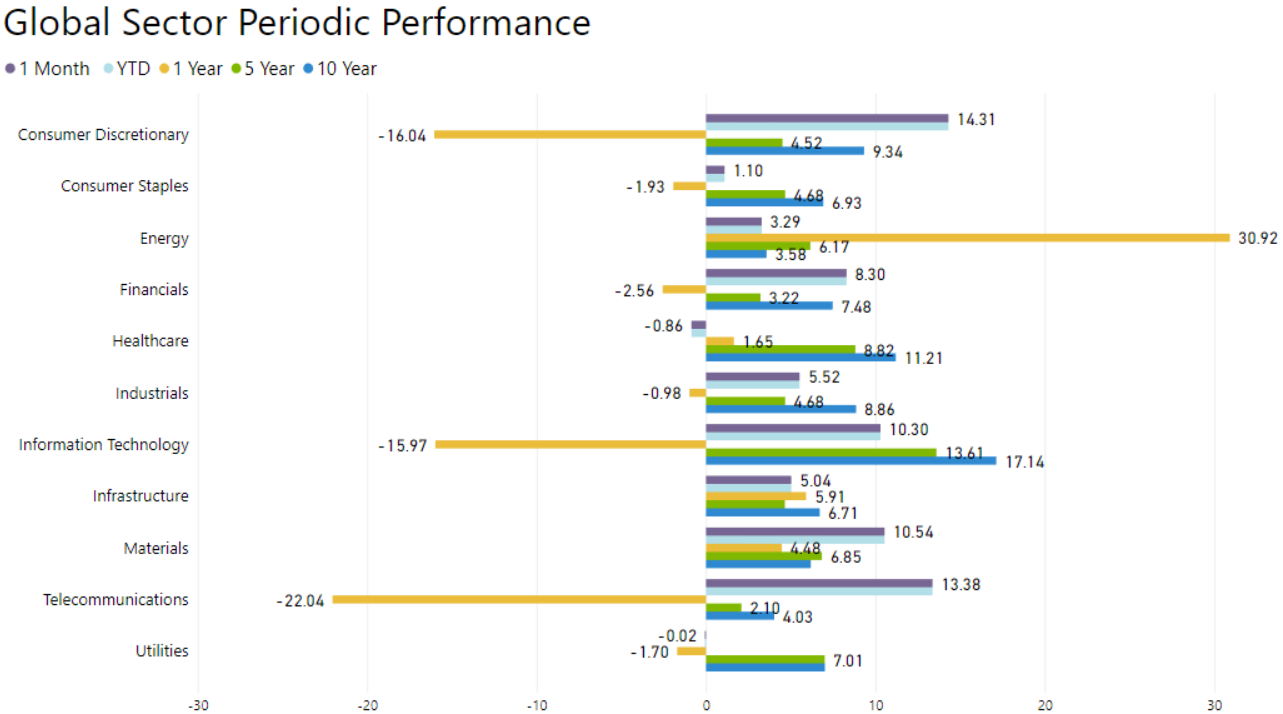
In January, value underperformed growth in the large-cap space and small-cap space. Momentum recorded a return of 1.08%. Growth stocks were helped by the rebound in the information technology sector. Bitcoin and other speculative stocks rallied in January, but these investments are still down around -70% from their highs. Value stocks across the world continue to trade at large discounts relative to growth stocks. Value-oriented sectors such as energy, financials, and materials may still have much more room to run.
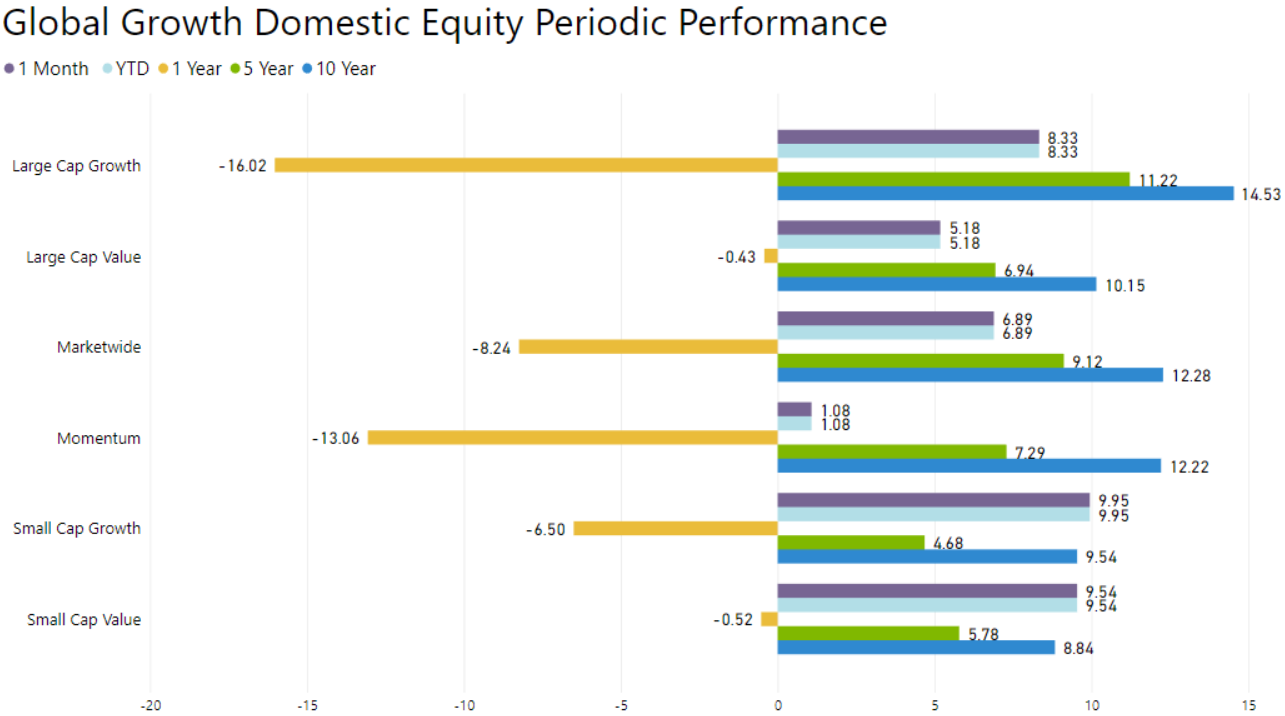
In the international developed markets, value underperformed growth in the large-cap space but outperformed in the small-cap space for the month. Momentum recorded a return of 4.57% while small-cap emerging market stocks posted a return of 5.71%. Valuations of value stocks are still very low relative to growth stocks in both international developed and emerging markets, which is consistent with the US market. Rising interest rates may also pose more of a risk to growth stocks than value stocks.
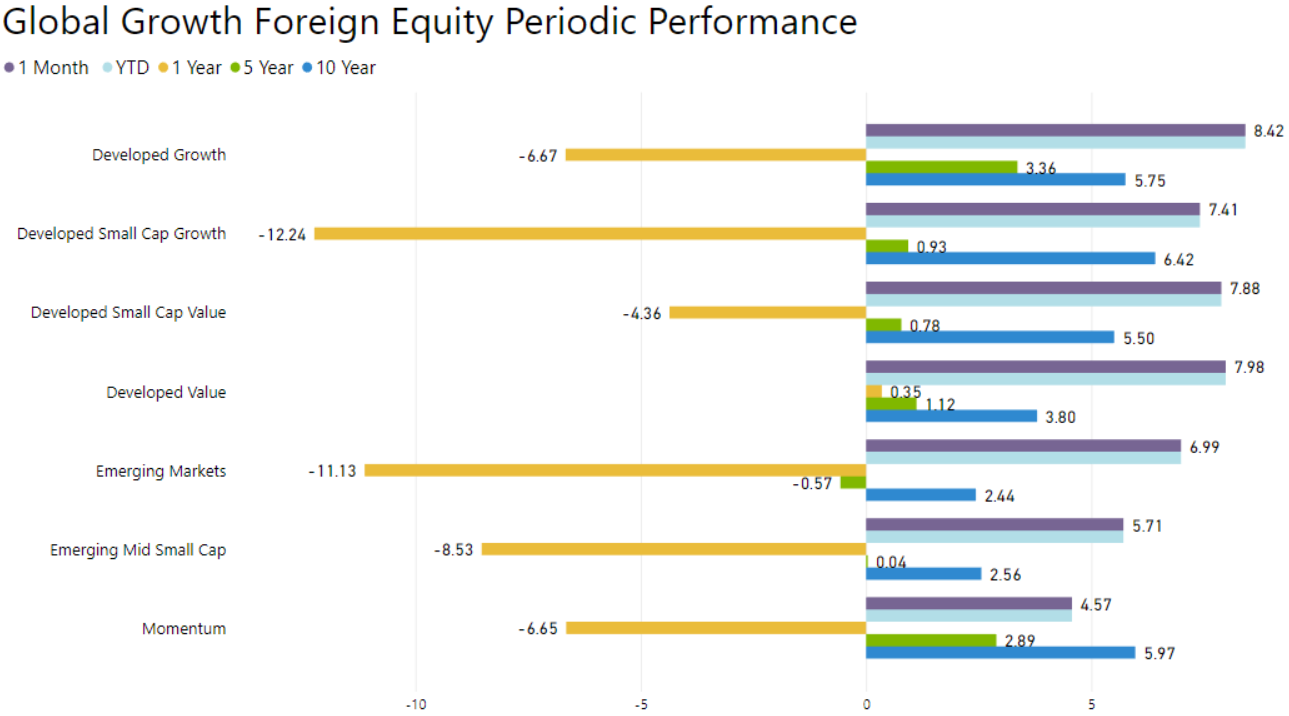
In January, the three-month Treasury bill index returned 0.31%. From the beginning of 2022 through the end of January 2023, the annualized interest rate on the 90-day Treasury bill increased from 0.08% to 4.70%. Savers are now getting paid much more in interest. However, they still face low real interest rates due to inflation remaining high. The CPI has increased by 6.42% over the past year through the end of December.
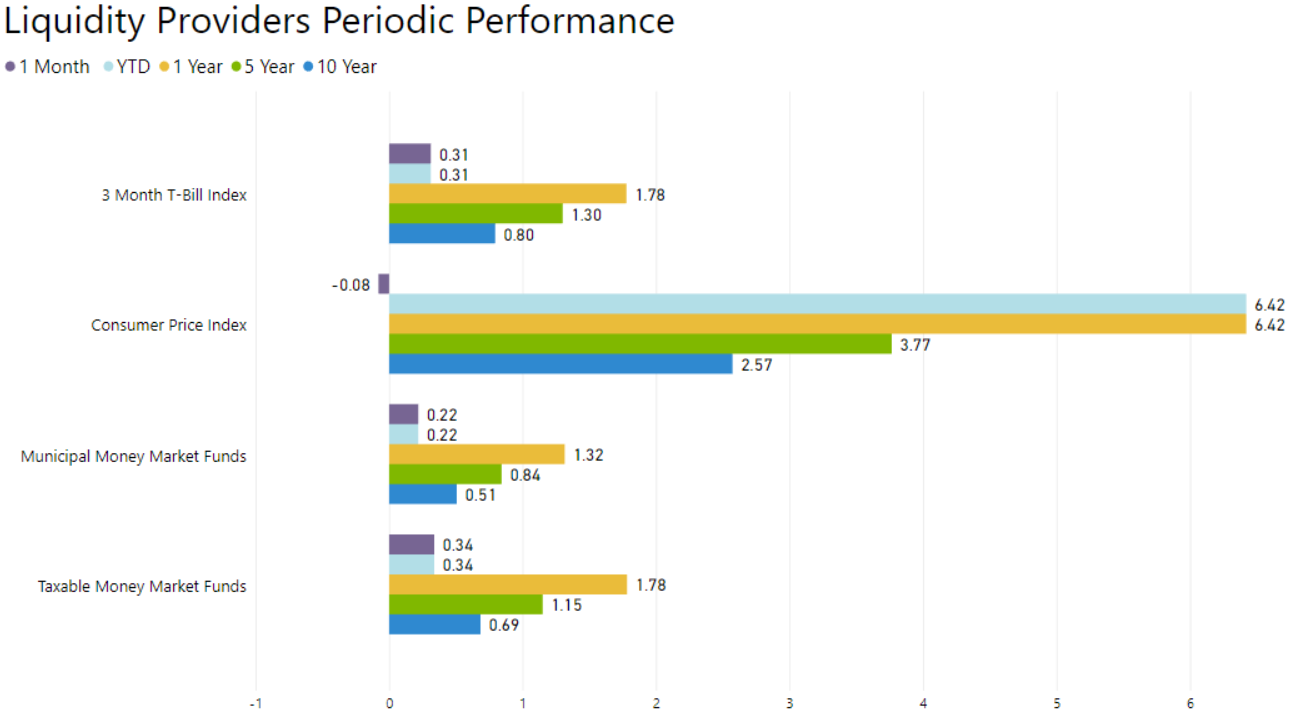
The returns of deflationary hedges were positive for the month. The Bloomberg Barclays U.S. Agg Bond Index returned 3.08% for the month. In January, longer term interest rates declined, boosting the performance of long-term bonds. Even though some of the riskier fixed income investments like high yield have rebounded, these less creditworthy borrowers may face difficulties meeting their financial obligations as they continue to roll their debt and have to pay higher interest rates.
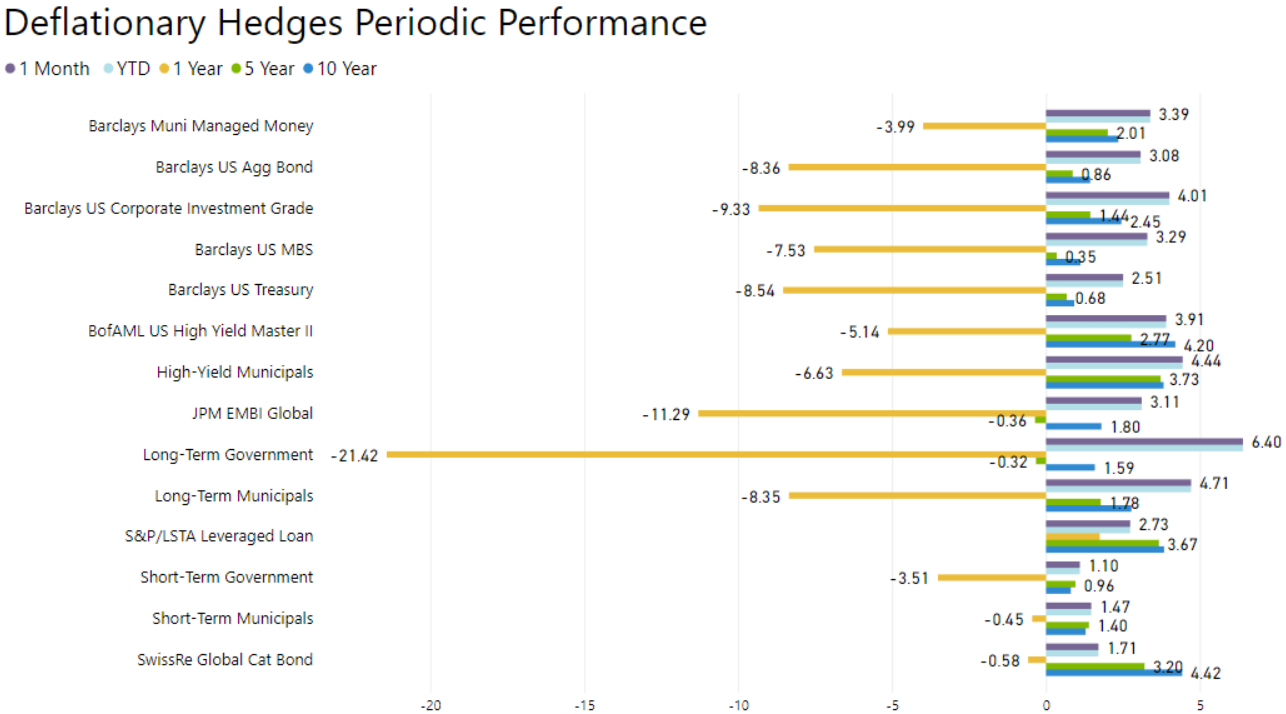
Inflation-sensitive investment returns were mixed for the month. U.S. real estate and the Alerian MLP returned 10.98% and 6.61%, respectively, in January. The Bloomberg Commodity index posted a return of -0.49%. Gold bullion is up 6.07% YTD after the Federal Reserve suggested a slower pace of interest rate hikes going forward. The US dollar has weakened over the past few months, which has helped the returns of gold bullion and gold miners. Oil markets continue to be tight, and consumers may face spikes in oil prices if demand picks up and supply remains constrained.
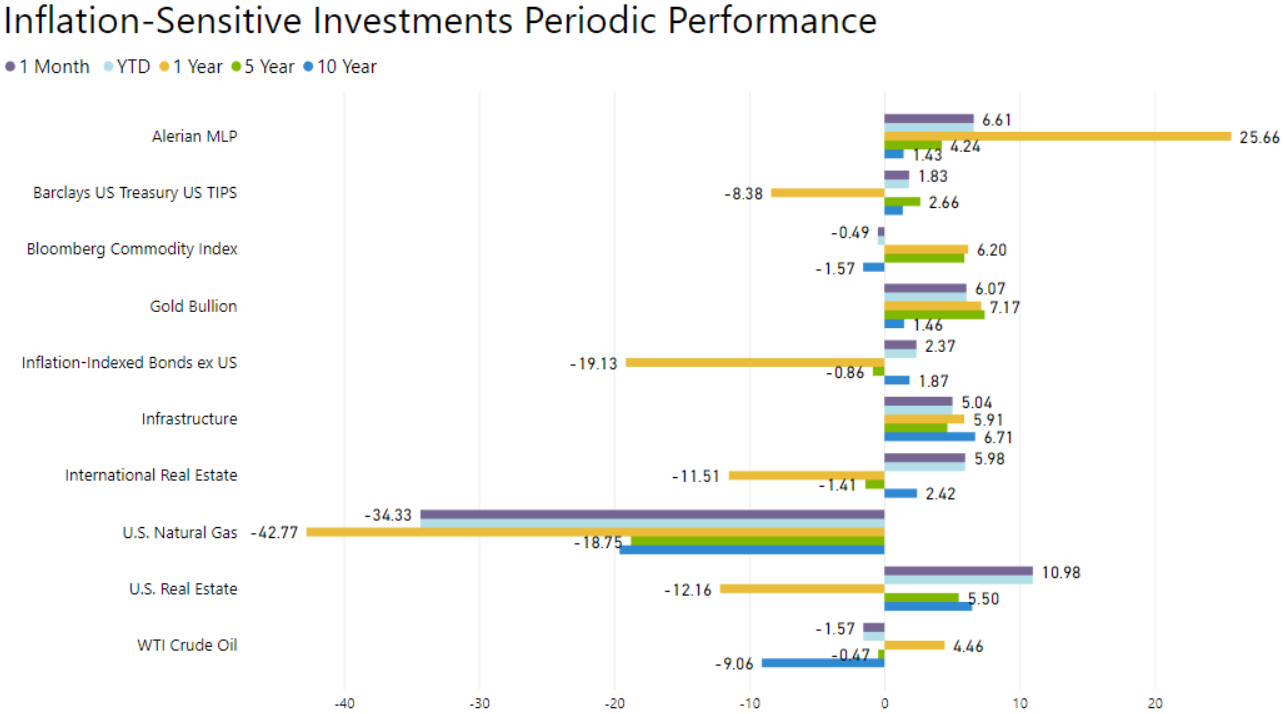
Over the past three months, the U.S. dollar depreciated against most major currencies. Over the past year, the U.S. dollar strengthened against most currencies except for the Mexican Peso, Swiss Franc, and Australian dollar. The continuation of U.S. fiscal deficits may weigh on the U.S. dollar in the medium-term to long-term. Gross federal debt to GDP stands at 123% and is forecasted to increase through the decade.
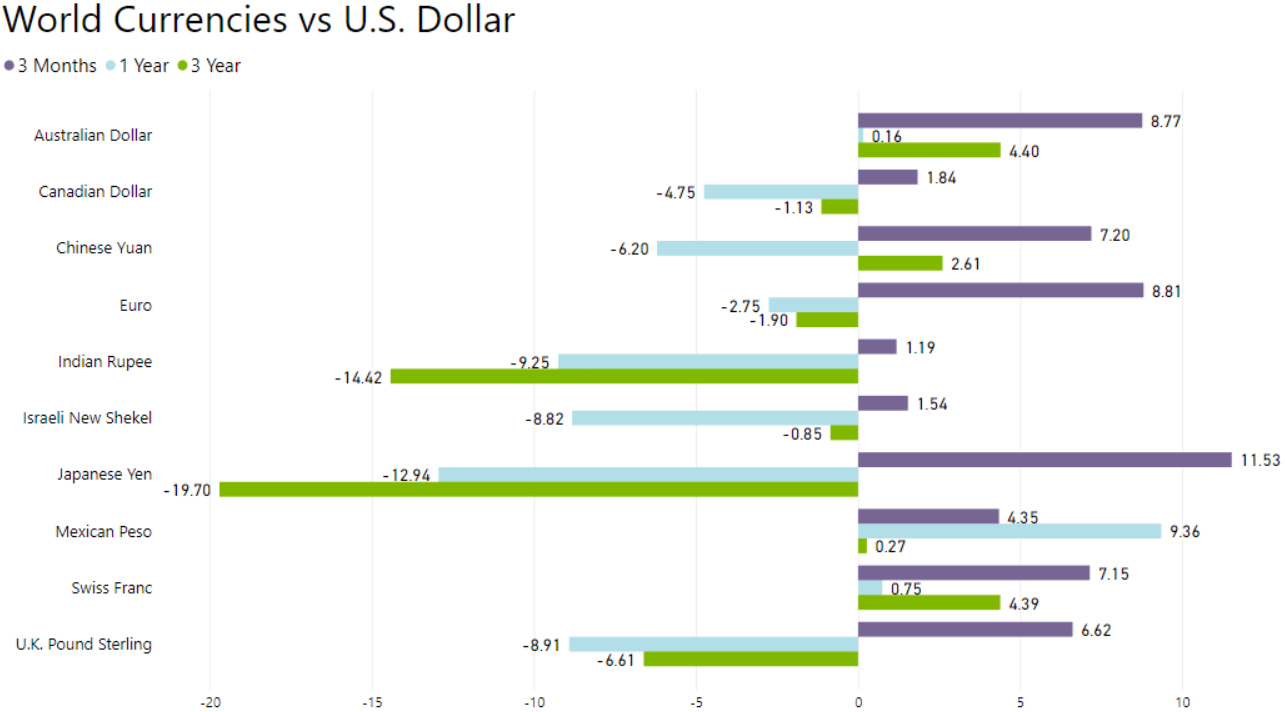

Brandon conducts investment due diligence for Versant Capital Management, and designs and implements tools and processes to support the firm’s research. His background in biology and finance help him to look at challenges from multiple angles, resulting in unique and well-rounded approaches and solutions.
Please remember that past performance may not be indicative of future results. Different types of investments involve varying degrees of risk, and there can be no assurance that the future performance of any specific investment, investment strategy, or product (including the investments and/or investment strategies recommended or undertaken by Versant Capital Management, Inc.), or any non-investment related content, made reference to directly or indirectly in this article will be profitable, equal any corresponding indicated historical performance level(s), be suitable for your portfolio or individual situation, or prove successful. Due to various factors, including changing market conditions and/or applicable laws, the content may no longer be reflective of current opinions or positions. Moreover, you should not assume that any discussion or information contained in this article serves as the receipt of, or as a substitute for, personalized investment advice from Versant Capital Management, Inc. To the extent that a reader has any questions regarding the applicability of any specific issue discussed above to his/her individual situation, he/she is encouraged to consult with the professional advisor of his/her choosing. Versant Capital Management, Inc. is neither a law firm nor a certified public accounting firm and no portion of the article content should be construed as legal or accounting advice. If you are a Versant Capital Management, Inc. client, please remember to contact Versant Capital Management, Inc., in writing, if there are any changes in your personal/financial situation or investment objectives for the purpose of reviewing/evaluating/revising our previous recommendations and/or services. A copy of the Versant Capital Management, Inc.’s current written disclosure statement discussing our advisory services and fees is available upon request.
